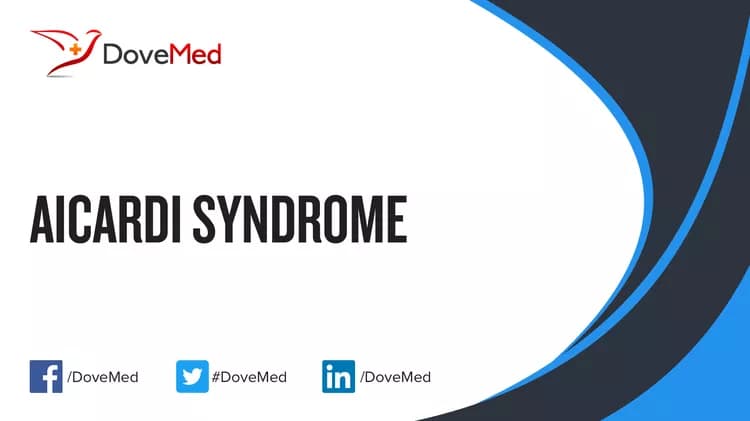What are the other Names for this Condition? (Also known as/Synonyms)
- Agenesis of Corpus Callosum with Chorioretinal Abnormality
- Callosal Agenesis and Ocular Abnormalities
- Chorioretinal Anomalies with ACC
What is Aicardi Syndrome? (Definition/Background Information)
- Aicardi syndrome is a rare genetic disorder that is characterized by the partial or complete absence of the corpus callosum.
- The corpus callosum is important as it connects the two sides of the brain. When it is damaged or not present communication between the left and right side of the brain is reduced or completely lost.
Who gets Aicardi Syndrome? (Age and Sex Distribution)
- Aicardi syndrome is only present in females.
- In very rare cases, Aicardi syndrome can be present in males with Klinefelter syndrome or other disorders that arise from the presence of an extra chromosome.
- Most cases of Aicardi syndrome arise during infancy. It can usually be identified in people before the age of five months. The signs and symptoms continue through life.
What are the Risk Factors for Aicardi Syndrome? (Predisposing Factors)
Little is known about the causes of Aicardi syndrome. For that reason, no known risk factors exist that predispose someone to developing Aicardi syndrome.
It is important to note that having a risk factor does not mean that one will get the condition. A risk factor increases ones chances of getting a condition compared to an individual without the risk factors. Some risk factors are more important than others.
Also, not having a risk factor does not mean that an individual will not get the condition. It is always important to discuss the effect of risk factors with your healthcare provider.
What are the Causes of Aicardi Syndrome? (Etiology)
- Currently, the cause of Aicardi syndrome is unknown.
- Aicardi syndrome is believed to be caused by a mutation on the X chromosome that usually arises sporadically.
What are the Signs and Symptoms of Aicardi Syndrome?
Common signs and symptoms of Aicardi syndrome include:
- Lack of development of corpus callosum
- Cleft lip
- Cleft palate
- Seizures
- Infantile spasms
- Eyelid twitching
- Abnormal facial formation
- Sores on retina
How is Aicardi Syndrome Diagnosed?
- Aicardi syndrome is usually diagnosed based on the symptoms that the individuals is present with.
- Diagnostic tests can be done to confirm that Aicardi syndrome is present. These tests include:
- Eye tests
- CT scan
- EEG
- MRI scan
Many clinical conditions may have similar signs and symptoms. Your healthcare provider may perform additional tests to rule out other clinical conditions to arrive at a definitive diagnosis.
What are the possible Complications of Aicardi Syndrome?
- Individuals with Aicardi syndrome are at a higher risk of dying during childhood. Most children who are affected with severe conditions do not survive past the age of 10.
- Other complications may arise as well. These can include:
- Mental retardation
- Spine malformations
- Eye malformations
How is Aicardi Syndrome Treated?
- Currently, no treatment options exist to cure Aicardi syndrome.
- Instead, treatments are administered that help control the symptoms of the disease. Medications to control seizures and spasms are often prescribed.
- Neurological treatment can also be done to alleviate symptoms.
How can Aicardi Syndrome be Prevented?
- Due to the genetic nature of Aicardi syndrome, no known methods of prevention exist.
What is the Prognosis of Aicardi Syndrome? (Outcomes/Resolutions)
- The prognosis for individuals with Aicardi syndrome greatly varies depending on the types and severity of symptoms present.
- With mild symptoms, most individuals can live relatively normal lives without many difficulties. As the severity of symptoms increases, life becomes more and more difficult.
- When symptoms are at their highest level and complications arise, most individuals fail to make it past the age of 10.
Additional and Relevant Useful Information for Aicardi Syndrome:
The following DoveMed website link is a useful resource for additional information:
Related Articles
Test Your Knowledge
Asked by users
Related Centers
Related Specialties
Related Physicians
Related Procedures
Related Resources
Join DoveHubs
and connect with fellow professionals


0 Comments
Please log in to post a comment.